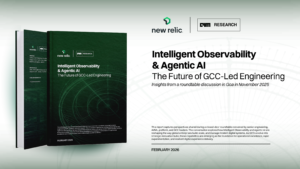What began as a small effort to modernize crop-dusting has now drawn the attention of some powerful new partners. Pyka, a startup founded in 2019, aimed to tackle an often overlooked but vital industry—agriculture. Using their electric-powered, autonomous Pelican planes, Pyka sought to bring a safer, more efficient method for spraying crops across large areas, replacing the outdated and dangerous process that relies on human pilots flying close to the ground.
But as the company gained traction in the agriculture sector, investors began to take notice. With the promise of Pyka’s technology extending far beyond the farm, the company recently raised $40 million in a Series B round, led by Obvious Ventures and supported by Piva Capital, Prelude Ventures, Metaplanet Holdings, and Y Combinator. This funding was meant to help Pyka scale up its production capabilities and expand its fleet, but it also marked the beginning of a new chapter—one that involved an unexpected suitor: the Pentagon.
Pyka’s lightweight planes, initially designed to handle the repetitive task of crop-dusting, soon evolved into a potential solution for a far larger market—cargo transport. With autonomous capabilities and a payload capacity of 400 pounds, the company saw an opportunity to use its planes for short-distance logistics, particularly inter-island commerce, which often relies on slow boats or aging aircraft. The Pelican’s speed and efficiency made it a natural fit for moving goods between remote areas.
However, the versatility of Pyka’s technology attracted the attention of the Department of Defense, which saw potential in these autonomous planes for military logistics. CEO and co-founder Michael Norcia admitted this was not something they had anticipated. “When we started, we were purely focused on commercial use,” Norcia explained. “But the defense interest caught us by surprise. The military’s mindset around autonomous systems has shifted, especially with recent conflicts like the war in Ukraine emphasizing the need for faster, more flexible logistics solutions.”
As defense priorities evolved, the Pentagon began seeking more adaptable, cost-effective systems, unlike the multi-million-dollar custom-built aircraft that often take years to develop. Pyka’s planes, with their off-the-shelf capabilities, provided a perfect alternative for automating battlefield logistics. While Norcia acknowledged that working with defense wasn’t an easy decision, he highlighted the benefits of automating dangerous tasks. “I’d rather see a robot shot down by another robot than human lives lost,” he said.
To meet military requirements, Pyka partnered with aerospace giant Sierra Nevada Corporation, making necessary adjustments to the aircraft’s electronics for deployment in contested environments. The defense variant of Pyka’s aircraft, dubbed Rumrunner, is designed to handle logistics on the battlefield, with the Pentagon betting on this cost-effective, uncrewed solution.
Yet, Pyka’s commercial ambitions remain strong. Although defense now accounts for a significant portion of their deliveries and revenue, Norcia believes that the commercial use case will flourish over the next five to ten years, once regulatory hurdles are overcome. The new funding will be crucial in scaling production for both sectors, allowing Pyka to meet the demands of agricultural and defense customers alike.
One of Pyka’s notable achievements came recently when Heinen Brothers Agra Service became their first U.S. agricultural client. This partnership marks a significant milestone for the startup, positioning it as a key player in modernizing food production systems through sustainable technology. In an interview with RFD-TV, Norcia and Lukas Koch of Heinen Brothers discussed the environmental and economic benefits Pyka’s planes bring to U.S. agriculture, underscoring the impact on American farmers.
While Pyka has put its early plans for a passenger plane on hold, Norcia remains optimistic about the long-term vision. “The passenger plane is still our North Star,” he shared. “All the work we’re doing now in cargo and defense is building toward that future. We’re gathering the data and creating the cash flow we need to eventually make that leap.”
With $40 million in new funding and of course the Pentagon, and growing interest from the agricultural sector, Pyka is in a for significant growth. Though they may have started with humble goals, their electric autonomous planes are now at the center of both commercial and military innovation.





